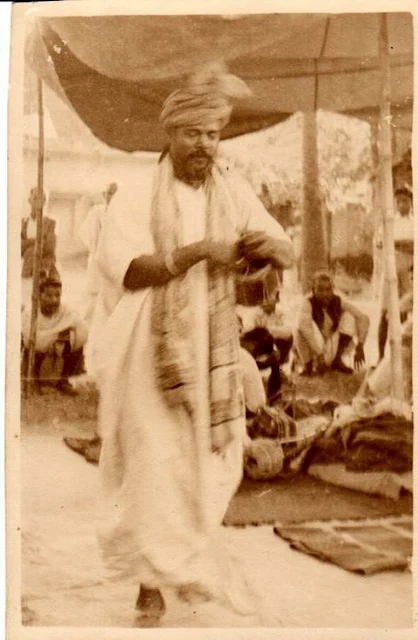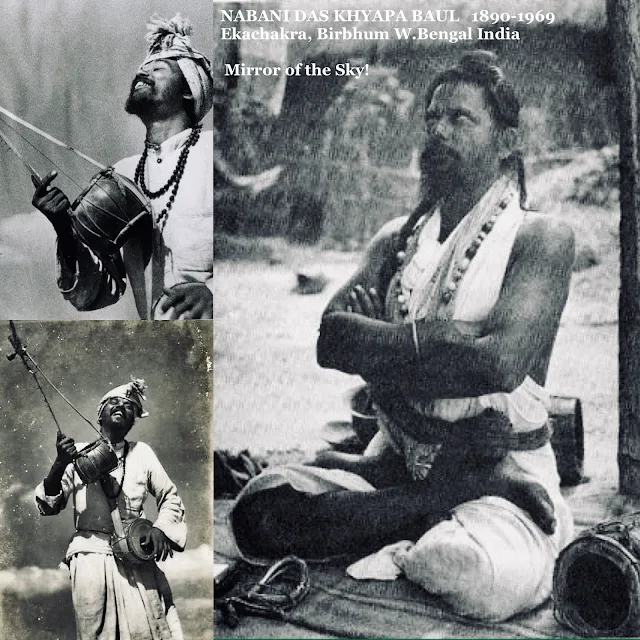Scholars are paid to write papers and books, lecture by way of grants from many source. Someones indigenous ancestral lineage becomes their career. They do field trips, digging into things they do not know the history or languages of, they interview all the wrong people, and copy and paste already wrong things written in other books by a other scholars they worship as renowned, patting each other on the backs, this is the old colonial system, all indigenous Hinduism should not be qualified through the rigors of the Indian system of Indian Philosophical debate in Philosophy (Darshana). No longer should any Indian wisdom be measured in Colonial academics.
"In Sanskrit, philosophy is known as "Darshana" (दर्शन).
The word "Darshana" literally means "vision," "insight," or "philosophical viewpoint." It refers to the various schools of thought, perspectives, or philosophical systems that aim to understand the nature of reality, the universe, and human existence.
There are six orthodox schools of Hindu philosophy, also known as the "Shad Darshanas" (षड दर्शन), which are:
1. Nyaya (न्याय)
2. Vaisheshika (वैशेषिक)
3. Samkhya (सांख्य)
4. Yoga (योग)
5. Mimamsa (मीमांसा)
6. Vedanta (वेदान्त)
These Darshanas offer distinct perspectives on the nature of reality, the self, and the ultimate reality, and continue to influence Indian thought and culture to this day.
In Sanskrit, "Purva Paksha" (पूर्व पक्ष) literally means "prior examination" or "preliminary investigation." In the context of Indian philosophy, particularly in Hinduism and Buddhism, Purva Paksha refers to:
1. Critique of opposing views: A methodological approach where one critically examines and challenges the philosophical views of others, often to establish the validity of one's own position.
2. Initial inquiry or investigation: A preliminary examination or inquiry into a subject or philosophical system, aimed at understanding its fundamental principles, strengths, and weaknesses.
In traditional Indian philosophical debates, Purva Paksha involves:
- A thorough study of the opposing views
- Identification of potential flaws or weaknesses
- Formulation of counterarguments
- Presentation of one's own philosophical position
By engaging in Purva Paksha, philosophers and scholars aim to:
- Clarify their own understanding of the subject
- Strengthen their arguments by anticipating counterarguments
- Develop a more nuanced and informed perspective
Purva Paksha is an essential aspect of Indian philosophical inquiry, encouraging critical thinking, intellectual humility, and a deeper understanding of complex ideas."
The academics are not indigenous to the group they study, however, they take liberty and make speculations in something they can not figure out, and then are given the authority over that indigenous people. Time has changed the only authority over any indigenous people is the the indigenous people. The United Nations has proclaimed that only the indigenous people have rights over their self-determination. If you talked to the wrong self-proclaimed pretendian Baul that is your fault for not knowing their languages of Oral Sanskrit with manuscripts, of not knowing the difference between the Birbhum Bengali vernacular dialect and Bangladeshi dialect? It is your fault if you didn't learn Baul Sandhya Bhasha the secret coded language of Baul that includes the metaphors, allegories, riddle and paradox, that you didn't learn who are the Baul poets and the full songs, that you didn't even know the biggest Baul hoax and lie is the there is a such thing as a Muslim or Fakir Baul. You should all have your PHDs taken away for trying to self-determine an indigenous tradition.
Then they write a paper or a book and some other scholar copies and pastes, it is like gossip, copy and paste until even the fake Baul singers think it is true, they then believe it and teach it and preach it to a whole new generation poisoning their minds and destroying the cultural legacy of a whole group of ancient indigenous people.
This has lead to a Cultural Genocide in Baul. Baul is not an umbrella for a random peoples, it seems when a scholar or writer does not know where to place a person or group, they say they are a sub group of Baul?
The authority on The Vaishnava Bauls of Birbhum, Bengal lies within the lineage, within this one and only lineage, by someone who has preserved it, even other family members of this lineage do not have a clue, they just make up stories and copy and paste.
There is so much cultural appropriation that has gone on for decades.
Baul is extinct and all scholars can do is speculate.
They gather research from people who do not know anything, from fake Bauls, those who follow this lineage but make up new lineages that never exist. These people water down and reduce Baul.
Bauls are the only authority about who they are, not Baul singers, not the fake it til you make it, not western Bauls who write patch work stories and have fake Baul Guru's, not scholars who have done more damage through their speculations that water down and reduce Baul making connections, Bauls are low caste, Bauls are beggers, Bauls are this group an that group, Bauls are illiterate. The Bauls you interviewed are NOT Bauls.
They just keep on Baul is from Persian, Uzbekistan, Muslim, this sub group, that sub group, No you are wrong!
Babu Kishan aka Krishnendu Das Baul used to plant wrong statements to see if it would be copied because everybody copied his work and yes they not only copied it, they twisted it, took his name off and presented as teachings, this has been a many decade experiment. His own poetry used and his name taken off, his grandfather poetry used and name taken off, then the gaul to put other peoples name on the poetry. A authentic Baul always knows who wrote the poetry.
This is one of the biggest tales coming out of the Western Scholar circle. It is repeated over and over, the funny thing these scholars all stick together and confer with each other, copy paste from one paper to another, book to book, spread as truth, and using that Baul is an oral tradition to not have to do any deep research in Bengali or Sanskrit. Nabani Das Khyapa Baul had many Sanskrit manuscripts, duh, Vaishnava Agama's. Scholars prefer to keep Bauls illiterate, they were oral Sanskritists but yes they had manuscripts, it is much easier to be a scholar when you do not have to translate or dig deeper into Sanskrit manuscripts, they just want to copy and paste or say they did field work living with the Bauls.
Bauls are extinct who you are talking to does not even know, they are just giving you what you want to hear for their own sak?
Vaishnava Bauls do not focus on this ingesting mentral blood, some Tantrics who partake in these tantric practices do but not the traditional Vaishnava Bauls this I know is a fact.
They say,"Ingesting menstrual blood is the focal point of Vaishnava Baul ideology, a tradition sustained by means of recruitment. Yet many converts continue to reside in their natal village, thus maintaining daily contact with their kin and neighbors. This fact has been insufficiently emphasized"???
This is not true.
"The traditional Vaishnava Bauls are not sustained by way of recruitment."
Baul is an oral Sanskrit tradition that was passed word of mouth between from father to son, and mother to daughter within family blood lines. They accepted everybody but to be a Baul you would have spent at least 12 years with your Guru a family member learning sanskrit and in sadhana. They accepted everybody, that does not mean they became everybody?
Baul is almost extinct this is misleading scholarship. There are very few Bauls left in this world if any in 2022.
Again they state,This fact has been insufficiently empahsized (of ingesting mentral blood)" because it is not true.
It is true Bauls do not follow rules and regulations and they are not orthodox in the traditional sense but what that means is they are spontaneous, natural and they have a tradition,
I have explained that Bauls are not beginners, they already know the rules of Yoga and Tantra, they learn Shastra through stories, so they do not follow the rules of the beginners hearing Indian philosophy for the first time. They are inner, they do not build temples and exterior, they are inner and should be way more educated on any subject of their world, which is Sanatan Dharma. They accept all but they do not become all, they are humanists. They do not like people to touch their feet. however, today they are NO MORE.
Just stop all this making up of stories and if you are scholar become a Sanskristist first. Oral Sanskrit and Vaishnava agama manuscripts, Upanishads and all Indian Philosophy, who can teach all that orally today, Do you understand, that is why Baul is extinct, but instead every uneducated illiterate wandering person is called a Baul by who, by scholars?
There perhaps are some people who were associated witht the Bauls or are new Baul singer who emphasize this. This is definetly not a focual point of Vaishnava Baul, what this is is a great way to sell a book, to make money off the Bauls again a way to create some kind of attraction, a way to attract the curious, again this is not the emphasis of what the Bauls are.
Vaishnava Baul is an incredibly beautiful oral tradition, why not write about this beauty, the love. There are maybe only a few real Bauls left who can pass on the tradition and preserve what is left of the magic.
"Ingesting menstrual blood is the focal point of Vaishnava Baul ideology, a tradition sustained by means of recruitment. Yet many converts continue to reside in their natal village, thus maintaining daily contact with their kin and neighbours.
This fact has been insufficiently emphasized. Instead, previous accounts have tended to describe the adherents as marginal wanderers, "renouncers," opposed to society at large (Capwell 1974; Dimock 1989; Salomon 1995:187)." Again NO this is not the focial point,neither is recruitment, Bauls never recruit anybody, if they did they would not be on the verge of extinction.
Bauls do not beg, if they do they are not a Baul, Bauls are were given Dakshina, they were the spiritual newspapser before the newspaper... Bauls are not beggars, perhaps new Bauls singers are But not authentic tradition Vaishnava Bauls. They are beggars only for God/dess.
Railway station singing is a new phenomena, Purna Das Bauls was the first Bauls to start this if other have followed it is new, Baul is ancient going back thousands of years. Baul caste is not that of the untouchables.. leatherworkers, they were farmers, they are Jat Gosai. Please understand what you are seeing today is not what it had been for the past thousands of years. In the past 30 years the Bauls have become extinct, only the ones who hold the oral tradition within them know what Baul is. There are many people calling themselves Baul who beg but this is not Baul. Vaishnava Bauls have never been leatherworkers, if you know the culture of Bengal you would Bauls are never, ever leatherworkers. These people may call themselves Baul but Vaishnava Baul never does leatherwork.
http://www.highbeam.com/doc/1G1-97235907.html
This is another piece of mixed up scholarship, patchy work, copy and pasted and then copyrighted. I know it is all well menaing but the Bauls have been used by scholars, record producers, movie makers, by religious groups for fundraising. The whole culture has been stolen and revamped and relabled and twisted. Babukishan knows this all to well, the last scholar mentioned in the list of scholars above, God rest her soul, used Babu by getting him to sign grant papers, ect.. and then cut him out and used some so called new Baul singers.


















